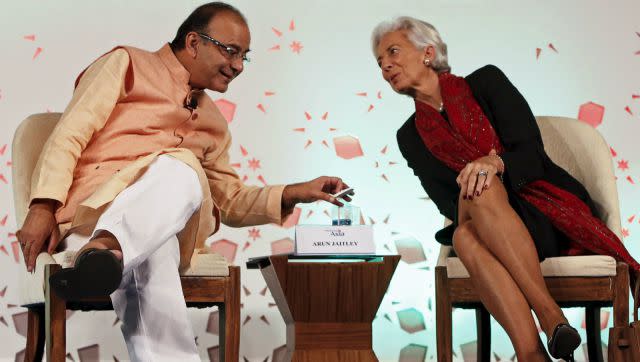Why is the IMF concerned over the world’s fastest-growing major economy?

India is celebrating 25 years of economic liberalisation this month, but a recent report by the International Monetary Fund (IMF) suggests a sobering future.
Yesterday (July 24), IMF listed (pdf) the top challenges Asia’s third-largest economy faces—those that would “weigh on growth.” This report comes less than a week after the Washington DC-based organisation lowered its GDP growth estimates for India from 7.5% for 2016-17 to 7.4%.
India is currently the world’s fastest-growing major economy, but the concerns pointed out by the IMF could be a drag on the GDP.
Here are the IMF’s top five concerns for India:
Slow pace of reforms
The Indian economy is currently facing “decelerating pace of reforms” as some of the most important legislations have been in limbo for years, IMF says.
For instance, the Indian parliament is yet to pass the goods and services tax (GST) bill, a tax reform that has been the Narendra Modi government’s top priority since assuming power. GST can help companies and investors alike as it will streamline the current web of taxes and attract foreign investments.
“The quality of fiscal consolidation in India should be improved through a comprehensive tax reform (such as introducing the goods and services tax and improving tax administration) and measures to further reduce subsidies,” the IMF said in the note.
Weak balance sheets
Stressed balance sheets of Indian firms and banks must be fixed, the IMF said.
Indian companies are saddled with huge amounts of debt and banks are tackling massive bad loans. These could pull down GDP. The IMF explained:
Corporate leverage has increased significantly in emerging economies—e.g., Brazil, India, and Turkey—in domestic and foreign currency, against the background of ample global liquidity. A strong pullback of capital flows to emerging economies could tighten financial conditions and weaken their currencies, with the possibility of significant adverse corporate balance sheet effects and funding challenges, and significant repercussions for banking systems.
Exports
India’s sluggish export growth is worrying, according to the IMF. An important source of foreign exchange, exports have been battered over the last year due to a fall in oil prices and weak global demand.
Modi has set an ambitious target of doubling exports to $900 billion by 2020. After 18 consecutive months of decline, exports rose 1.27% in June 2016. This must sustain and accelerate, otherwise the target would be hard to meet.
Labour market reforms
These reforms will not only help the economy but will also attract foreign investment. Though Indian states like Rajasthan have embarked on a course to make changes in labour laws, there’s been no move at the national level.
Public spending
Increasing public investment and social spending are necessary, the IMF said. This will help in “achieving faster and more inclusive growth.” An increase in public spending boosts demand, and creates jobs, thereby aiding economic growth.

Sign up for the Quartz Daily Brief, our free daily newsletter with the world’s most important and interesting news.
More stories from Quartz:

 Yahoo Finance
Yahoo Finance 